Rockwell Automation has released FactoryTalk Optix, a brand-new visualization platform offered as a standalone product. The development environment's standard version can run on any local installation and the pro version can run on any local installation or web environment. Its runtime can be hosted locally, on an IPC, on a web client, or it can be deployed onto the new series of OptixPanel conventional HMI displays.
This new platform has a breadth of new features aimed at taking a modern approach to visualization. The platform is highly scalable, interoperable, and even allows for cloud-based collaboration.
Let’s explore how FactoryTalk Optix brings a modern shine to the development and look of graphical visualization.
FactoryTalk Optix - Highlights
Just glancing at the main design screen shows how streamlined the development layout is.
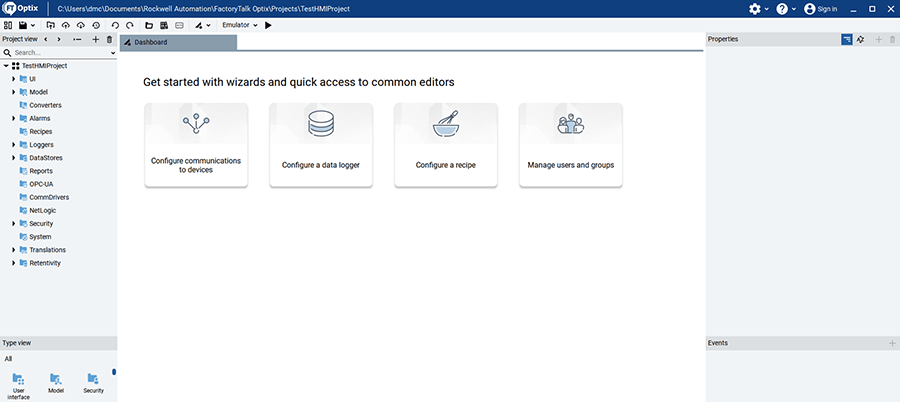
Database integration includes support for internal SQL databases and connections to remote ones via Open Database Connectivity (ODBC). Paired with the development layout, it gives developers everything they need to work with these databases.
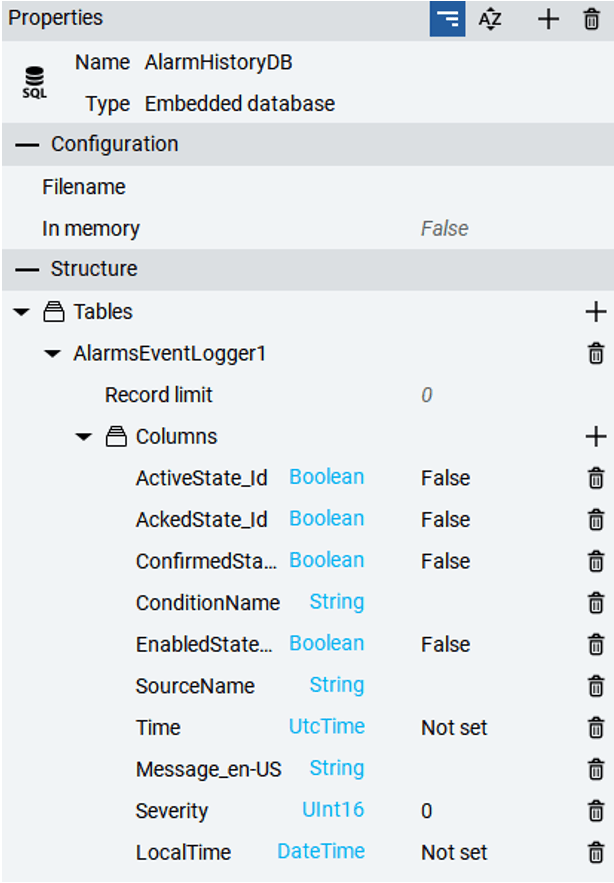
Additionally, with full OPC UA support and 12 native drivers, the runtime platform can connect to any PLC, not just Rockwell’s.
Optix is an object-oriented design platform, which makes design elements highly reusable and modular. Screen design is based on ‘containers’, objects that can be layered together to create complex and efficient designs.
Furthermore, the Library feature allows you to store and share custom objects, which makes the platform a highly attractive option for those who like to keep modular and reusable designs.
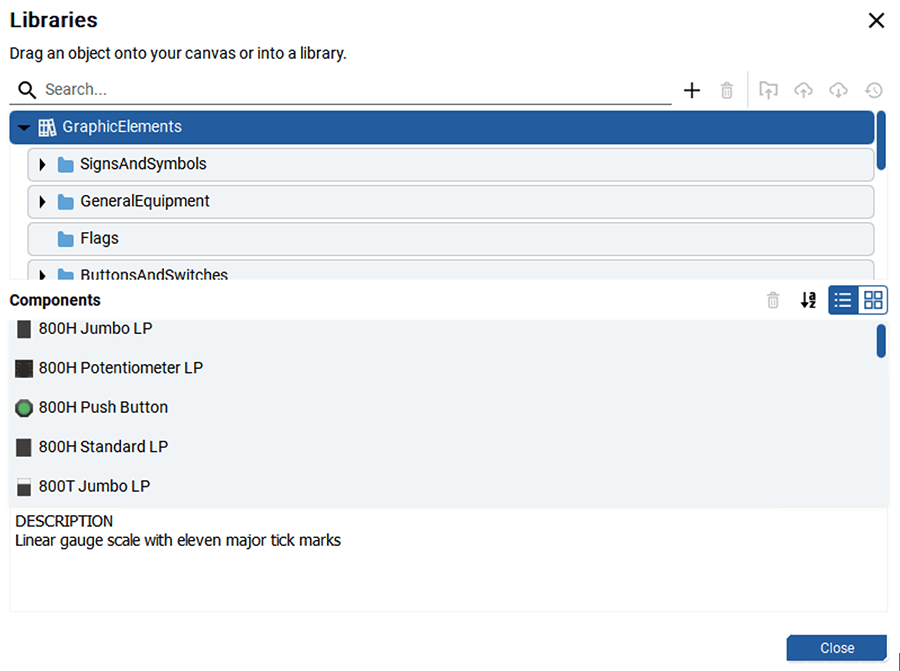
C# Scripting
Another standout feature is C# scripting in Visual Studio Code, which allows developers to write runtime scripts in addition to development scripts. This lets experienced developers expedite project creation by templating complex elements within their designs.
For example, take the following code snippet that can be used in design time to register alarms:
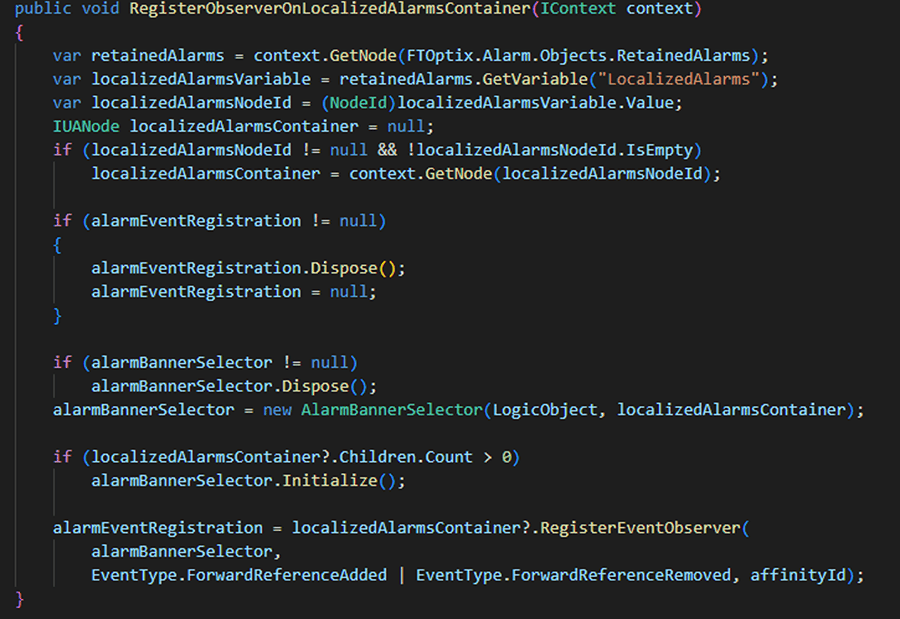
Version Control
Another major feature of Optix is the version control functionality. With the Standard (free) Version, you can use built-in local version control that utilizes built-in Git. Github and Gitlab integration are available. The Pro Version, along with support for FactoryTalk Hub and FactoryTalk Vault, making collaboration within your team a breeze. Due to the human readable .YAML project file format, you can even manually view version differences or use your own version control application.
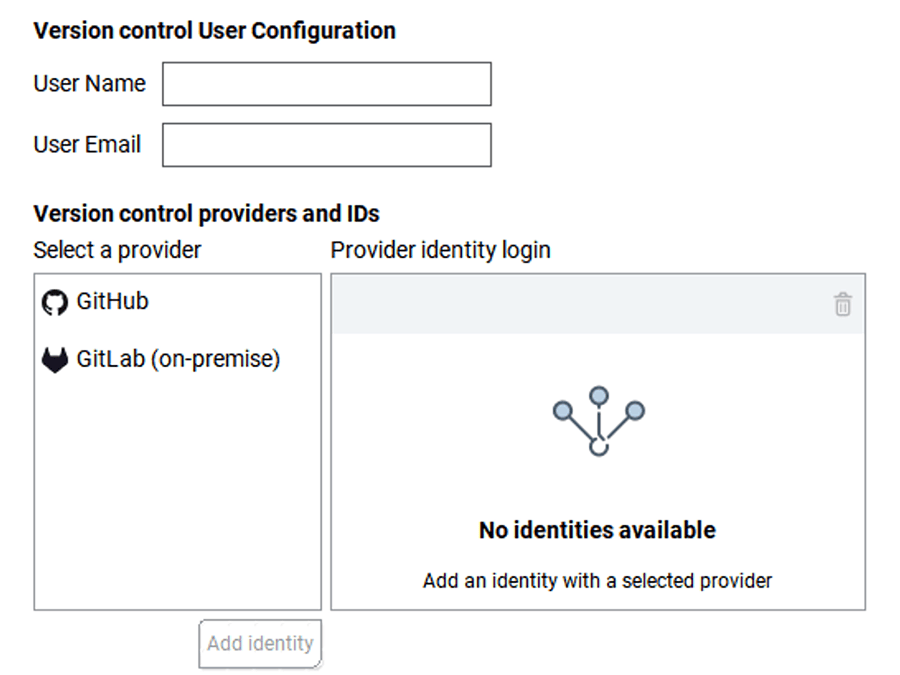
From my brief time working with the platform, I can attest to the fact that it is highly intuitive to work with. Check out the types of screens you can create for your next project by viewing this web deployment containing many of the different feature types: Features Demo
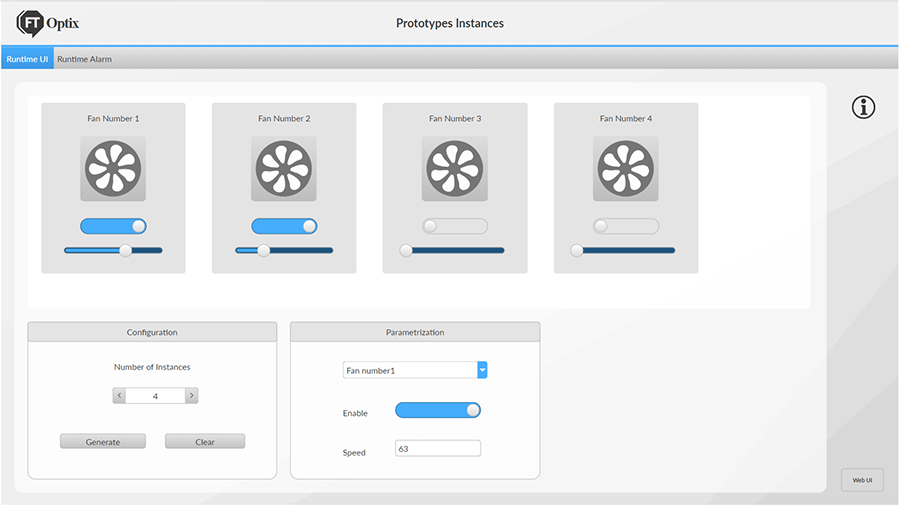
The best part is that Optix Standard is free to use! Give it a try and reach out to DMC to see if we can assist you with your development needs. As of November 15, Rockwell is currently offering a 90-day trial of the Pro Version when you sign up today.
Stay tuned for future blog’s from DMC highlighting new features in depth and providing tutorials on how to use them!
Learn more about our Rockwell Automation Gold System Integrator partnership as well as our Rockwell FactoryTalk expertise, and contact us today for your next project.